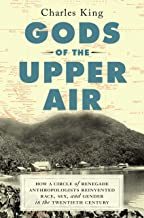At the end of the 19th century, everyone knew that people were defined by their race and sex and were fated by birth and biology to be more or less intelligent, able, nurturing, or warlike. The then-dominant school of anthropology propped up this narrative further in tracing “the stages of human culture” from “savagery” through to “barbarism” and finally to “civilization.” Mainstream scholars insisted that white supremacy was justified, and backed it up through eugenics, taking head measurements and heel length.
But one rogue researcher looked at the data and decided everyone was wrong. Franz Boas was the very image of a mad scientist: a wild-haired immigrant with a thick German accent. By the 1920s he was also the foundational thinker and the public face of a new school of thought at Columbia University called cultural anthropology. Racial categories, he insisted, were biological fictions. Cultures did not come in neat categories labeled “primitive” or “advanced.” What counted as a family, or a good meal, or even common sense was a product of history and circumstance, not of nature.
Overturning the prevailing science required more than fervent criticism. In his book, King, a professor at Georgetown and the author of several books about Eastern Europe and the former Soviet Union, describes how Boas tried to use the methods of physical anthropologists against them, deploying calipers and eye-color meters to show that the children of immigrants, born in the United States, had more in common with other American-born children than with the national groups represented by their parents. But Boas’s work in the field only accounted for part of his influence. It was mainly through his teaching at Columbia and his nurturing of a new generation of anthropologists that he changed how many Americans saw the world and, consequently, themselves.
Boas’s students at Columbia were some of the century’s intellectual stars: Margaret Mead, the outspoken field researcher whose Coming of Age in Samoa is one of the most widely read works of social science of all time; Ruth Benedict, the great love of Mead’s life, whose research shaped post-Second World War Japan; Ella Deloria, the Dakota Sioux activist who preserved the traditions of Native Americans of the Great Plains; and Zora Neale Hurston, whose studies under Boas fed directly into her now-classic novel, Their Eyes Were Watching God. Together, they women mapped vanishing civilizations from the Arctic to the South Pacific and overturned the relationship between biology and behavior. Their work reshaped how we think of women and men, normalcy and deviance, and re-created our place in a world of many cultures and value systems. (From material taken from The New York Times and Goodreads.)
For those who quickly devour this fascinating account and want to move on, the selection for January will be Underland: A Deep Time Journey by Robert MacFarlane.


